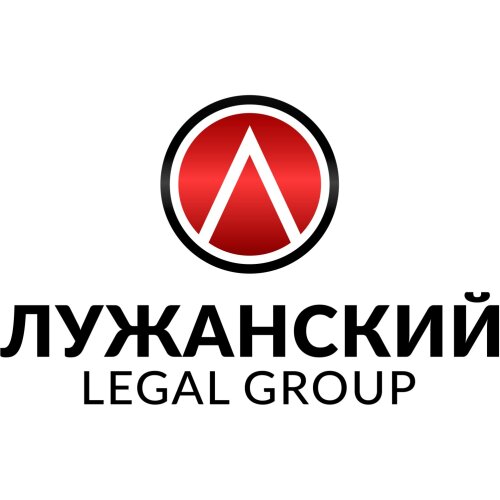Best Energy, Environment & ESG Lawyers in Kyrgyzstan
Share your needs with us, get contacted by law firms.
Free. Takes 2 min.
Or refine your search by selecting a city:
List of the best lawyers in Kyrgyzstan
About Energy, Environment & ESG Law in Kyrgyzstan
Kyrgyzstan’s energy, environment, and ESG (Environmental, Social, Governance) legal framework is a rapidly evolving area, reflecting both national priorities and international commitments. The country relies heavily on its natural resources, particularly hydropower, for energy production. At the same time, Kyrgyzstan recognizes the need to protect its rich biodiversity, fragile ecosystems, and the well-being of its communities. ESG principles are increasingly influencing business practices, investment decisions, and regulatory compliance in the region. This area of law encompasses rules on energy generation and distribution, environmental protection, climate change mitigation, and responsible business conduct.
Why You May Need a Lawyer
Legal expertise can be crucial in navigating the complex environment of energy, environmental, and ESG affairs in Kyrgyzstan. You may need a lawyer in situations such as:
- Developing or investing in energy projects, such as hydropower plants or renewable energy installations
- Negotiating energy supply contracts or disputes with state agencies or private parties
- Compliance with environmental regulations for construction, mining, or industrial operations
- Obtaining licenses, permits, or environmental impact assessments for your business
- Managing legal risks related to pollution liability or land use
- Addressing climate change obligations or reporting under ESG frameworks
- Facing environmental, social, or governance investigations or sanctions
- Representing communities or NGOs in environmental protection actions
- Resolving cross-border energy disputes or environmental claims
Given the technical and regulatory details involved, professional legal support can help ensure compliance, protect your interests, and contribute to sustainable outcomes.
Local Laws Overview
Kyrgyzstan’s legal system in this field is shaped by national laws and international treaties. Key aspects include:
- Energy Regulations: The Law on Energy, Law on Renewable Energy Sources, and governmental regulations govern production, transmission, and sale of energy. Hydropower and mining are prominent, with increasing support for renewables.
- Environmental Protection: The Law on Environmental Protection, Law on Environmental Expertise, and related regulations control pollution, waste management, land use, and natural resource conservation. Impact assessments are required for many projects.
- ESG Standards: While not always mandatory, ESG and corporate governance practices are encouraged by both local and international organizations. These cover transparency, anti-corruption, labor standards, and sustainability reporting for certain businesses.
- International Treaties: Kyrgyzstan is a party to treaties like the Paris Agreement, Aarhus Convention, and others, which influence its domestic policies in climate change and environmental rights.
- Regulatory Authorities: The Ministry of Energy, State Inspectorate for Environmental and Technical Safety, and other agencies supervise compliance and issue permits or penalties as needed.
Understanding these laws and their interplay is vital for anyone involved in the energy or environmental sectors, or those concerned with best ESG practices in Kyrgyzstan.
Frequently Asked Questions
What permits are required to start an energy project in Kyrgyzstan?
You will typically need an energy generation license, land use permits, environmental impact assessment approval, and other specific authorizations based on the type of project and resources involved.
Who enforces environmental protection laws?
The State Inspectorate for Environmental and Technical Safety, along with the Ministry of Natural Resources, Ecology and Technical Supervision, are the main state bodies overseeing enforcement and compliance.
Are there restrictions on foreign investment in the energy sector?
Foreign investment is generally allowed, though specific restrictions may apply in strategic sectors or locations. Due diligence is essential to understand legal and practical limitations.
What are the penalties for environmental violations?
Penalties can range from fines and suspension of activities to revocation of licenses or criminal liability for severe offenses, depending on the nature and impact of the violation.
Is renewable energy supported by government policy?
Yes, the government provides incentives for renewable energy projects, including tax benefits and feed-in tariffs, to encourage development of solar, wind, and small hydropower projects.
What is an environmental impact assessment?
An environmental impact assessment is a legal requirement for many projects that evaluates potential effects on the environment and proposes measures to mitigate negative impacts. Approval is needed before project commencement.
Do local communities have a say in environmental decisions?
Yes, public participation is recognized, especially for projects with significant environmental impacts. The Aarhus Convention supports public access to information and participation in decision-making.
What ESG obligations do companies have?
While not all sectors have mandatory ESG requirements, larger and publicly traded companies are encouraged and sometimes required to disclose information on governance, environmental impact, and social responsibility.
How can I appeal a fine or administrative decision?
Administrative decisions can generally be appealed through the courts or administrative bodies. A lawyer can help assess your case and represent your interests effectively.
Are there special protections for high-value ecosystems or cultural heritage?
Yes, special legal regimes exist for protected areas, endangered species, and cultural heritage sites, and any activities in or near such areas require additional scrutiny and authorization.
Additional Resources
The following organizations and bodies provide information, guidance, or oversight relevant to energy, environment, and ESG issues in Kyrgyzstan:
- Ministry of Energy of the Kyrgyz Republic
- Ministry of Natural Resources, Ecology and Technical Supervision
- State Inspectorate for Environmental and Technical Safety
- State Agency for Environmental Protection and Forestry
- Chamber of Commerce and Industry
- Investment Promotion Agency
- Local and international NGOs focusing on environmental protection, social responsibility, and governance
- International development organizations, such as the World Bank, United Nations, and European Bank for Reconstruction and Development
These resources can offer documentation, contacts, and sometimes direct support or mediation.
Next Steps
If you believe your situation involves legal issues in the field of energy, environment, or ESG in Kyrgyzstan, consider the following steps:
- Define your specific legal query or concern as clearly as possible
- Gather any relevant documents, contracts, permits, or correspondence
- Contact a qualified local lawyer with experience in the relevant field
- Inquire about the lawyer's approach, fees, and estimated timelines
- Be prepared to discuss your goals and any previous steps you have taken
- Follow professional legal advice to ensure compliance, minimize risks, and safeguard your rights or interests
Taking prompt and informed action can help you navigate the legal landscape and achieve a positive result in matters relating to energy, the environment, or ESG in Kyrgyzstan.
Lawzana helps you find the best lawyers and law firms in Kyrgyzstan through a curated and pre-screened list of qualified legal professionals. Our platform offers rankings and detailed profiles of attorneys and law firms, allowing you to compare based on practice areas, including Energy, Environment & ESG, experience, and client feedback.
Each profile includes a description of the firm's areas of practice, client reviews, team members and partners, year of establishment, spoken languages, office locations, contact information, social media presence, and any published articles or resources. Most firms on our platform speak English and are experienced in both local and international legal matters.
Get a quote from top-rated law firms in Kyrgyzstan — quickly, securely, and without unnecessary hassle.
Disclaimer:
The information provided on this page is for general informational purposes only and does not constitute legal advice. While we strive to ensure the accuracy and relevance of the content, legal information may change over time, and interpretations of the law can vary. You should always consult with a qualified legal professional for advice specific to your situation.
We disclaim all liability for actions taken or not taken based on the content of this page. If you believe any information is incorrect or outdated, please contact us, and we will review and update it where appropriate.
Browse energy, environment & esg law firms by service in Kyrgyzstan
Kyrgyzstan Attorneys in related practice areas.
Browse energy, environment & esg law firms by city in Kyrgyzstan
Refine your search by selecting a city.











